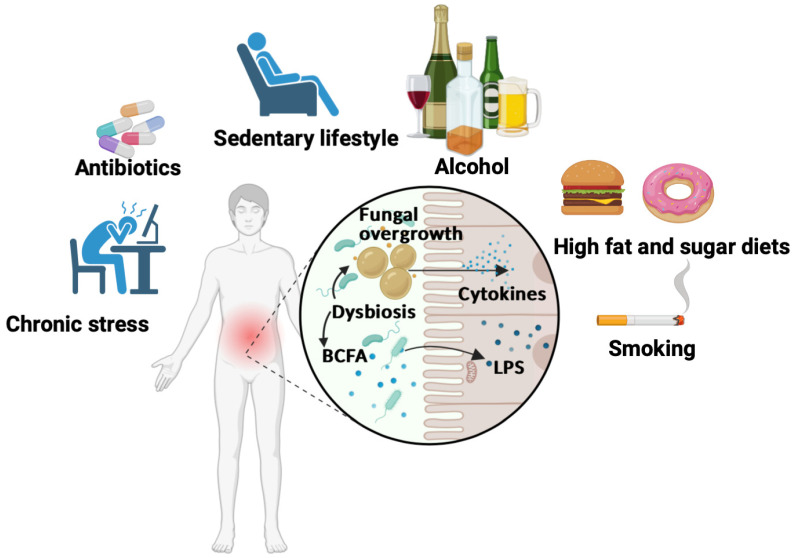Figure 2.
Schematic representation of unhealthy dietary patterns contributing to inflammatory pathogenesis and gut dysbiosis. Diets high in fat and sugar, smoking, excessive alcohol consumption, lack of physical activity, prolonged use of antibiotics, and chronic psychological stress all contribute to the development of gut dysbiosis. These diets cause an increase in branched-chain fatty acid (BCFA) production and populations of photobiont bacteria, such as E. coli, which produce lipopolysaccharides (LPS), as well as alteration of the intestinal barrier. Significant overgrowth of fungi is also observed, in particular C. albicans, in the gut during dysbiosis. All these factors induce the production of pro-inflammatory cytokines and leakage of pathogen-derived compounds, including LPS and fungal cell wall fractions, into the blood.

